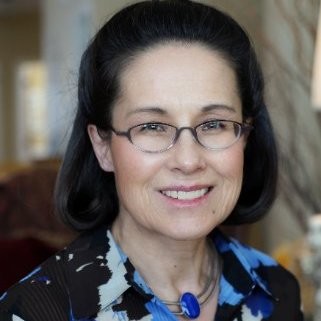Experts Share Ideas and Practices for Redesigning Work and Retirement
By: Karen Brown
Longer lives are the new normal. We now live a decade longer than our parents and nearly two decades longer than our grandparents. And for the Next Generation (children born between 2016 and 2035), their life expectancy leapfrogs to an upside of 107 years in age. If a Next Generation adult retires at 67, they may have 40 years of retirement to save for on top of planning how to fill the bonus years of life.

In 2018, approximately one in four Coloradan’s 65 or older continue to participate in the workforce. That number is expected to grow. Research done by the Bureau of Labor Statistics (BLS)
shows that the fastest growing segments of workers include the 65+ population with the 65-74 age group growth rate of 55 percent and the 75+ growth rate of 86 percent.
The Colorado Strategic Action Planning Group on Aging (SAPGA) a legislatively created work group focused on creating a state plan for aging, specifically draws attention to the fact that significantly more older adults in Colorado are interested in working longer. SAPGA made recommendations to the Governor and legislature to support the creation of Age-friendly Workplaces which recognize the value of all workers, including the 65+ population. Additionally, it points to the critical need for enhancement of retirement and health plans and evolving the work environment to be more flexible. That flexibility can be applied to retirement, particularly as it relates to phased retirement.
Envisioning what this new norm could look like is why the World Economic Forum and Mercer continue collaborating to explore the world of work and what Retirement2.0+ could hold for employees today and into the future. In early July, they hosted a webcast, one of several in a series in 2020 highlighting how lifespans and healthspans have expanded as well as the challenges of becoming financially secure.
Cross-discipline experts from around the globe participated in the series, below are highlights from the July session.
By 2024, 1 in 4 US workers will be 55 or older - more than double the rate in 1994 when 55-plus workers accounted for just 12 percent of the workforce.
100 Year Life Will Bring Changes to Traditional Workforce Trajectories
Andrew Scott, author of The 100-Year Life and The New Long LifeProfessor of Economics at the London Business School
Scott laid out the economic case for a new model of work for a longer life. He shared that along with extended life and health comes more productive hours for everyone – hours that could be deployed in the world of work. And he shows how we are already seeing shifts in the labor force across the globe with older people working longer.
He points to the three-stage model of life, which entails getting an education, having a career, and then retiring, as becoming outdated. The new multi-stage life is emerging where lifelong learning becomes mainstream and employment might include working for multiple companies interspersed with stints of self-employment and sabbaticals at different turning points in life. The linear path of the past will become a jungle gym with lateral shifts.
Evolving Workforce Models Being Piloted by Unilever Expands Talent Pool
Placid Jover, Vice President HR Latin America at UnileverLorag Lynagh, Global Future of Work Director at Unilever
Both concurred with the changes occurring in the labor force pointing to fewer younger people due to declining birth rates and increasing interest in longer work lives for older adults. With the support of top management, Unilever rolled out three new programs with an emphasis on the mature worker – U-Work, U-Renew and U-Train. Each program had a unique focus allowing more flexibility in work arrangements and assignments along with opportunities to update skills. Unilever’s vision entails creating broadening access to talent rather than the current model of predominately owning talent. This shift would likely create a smaller core employee base with a larger group of workers who are more project oriented.
Call to Action Around Phased Retirement Opportunities Could Help with Savings
Yvonne Sonsino, Global Co-Leader Next Stage, MercerAndre Belelieu Head of Insurance and Asset Management, World Economic Forum
Sonsino and Belelieu showcased the global picture for financial needs in retirement vs retirement savings – that is defining the retirement savings gap. There is a frightening difference with the US projections showing the average retiree will deplete his savings with 9.6 years of life left. Even more stunning is Japan which shows that the average retiree will have 17.5 years of life left after depleting his savings.
Mercer and the WEF point to the findings which yield a call to action for four stakeholder groups including government and policymakers, employers, employer’s providers of goods and services, and individuals. Flexible retirement programs were highlighted as an opportunity for each stakeholder group with an exploration of how that might impact working practices, rewards and benefits. Technology is also seen playing a role in helping to scale potential changes.
Davos 2021: Next Steps for Redesigning Retirement for the 100 Year Life
Karen Brown
CEO for Seniors Matter
Ambassador for Aging2.0 Denver Chapter
Member and past Chair for Colorado's Strategic Action Planning Group on Aging (SAPGA)
Email: karen.peffer.brown@gmail.com
Follow: @KPefferBrown
Connect: Karen Brown

